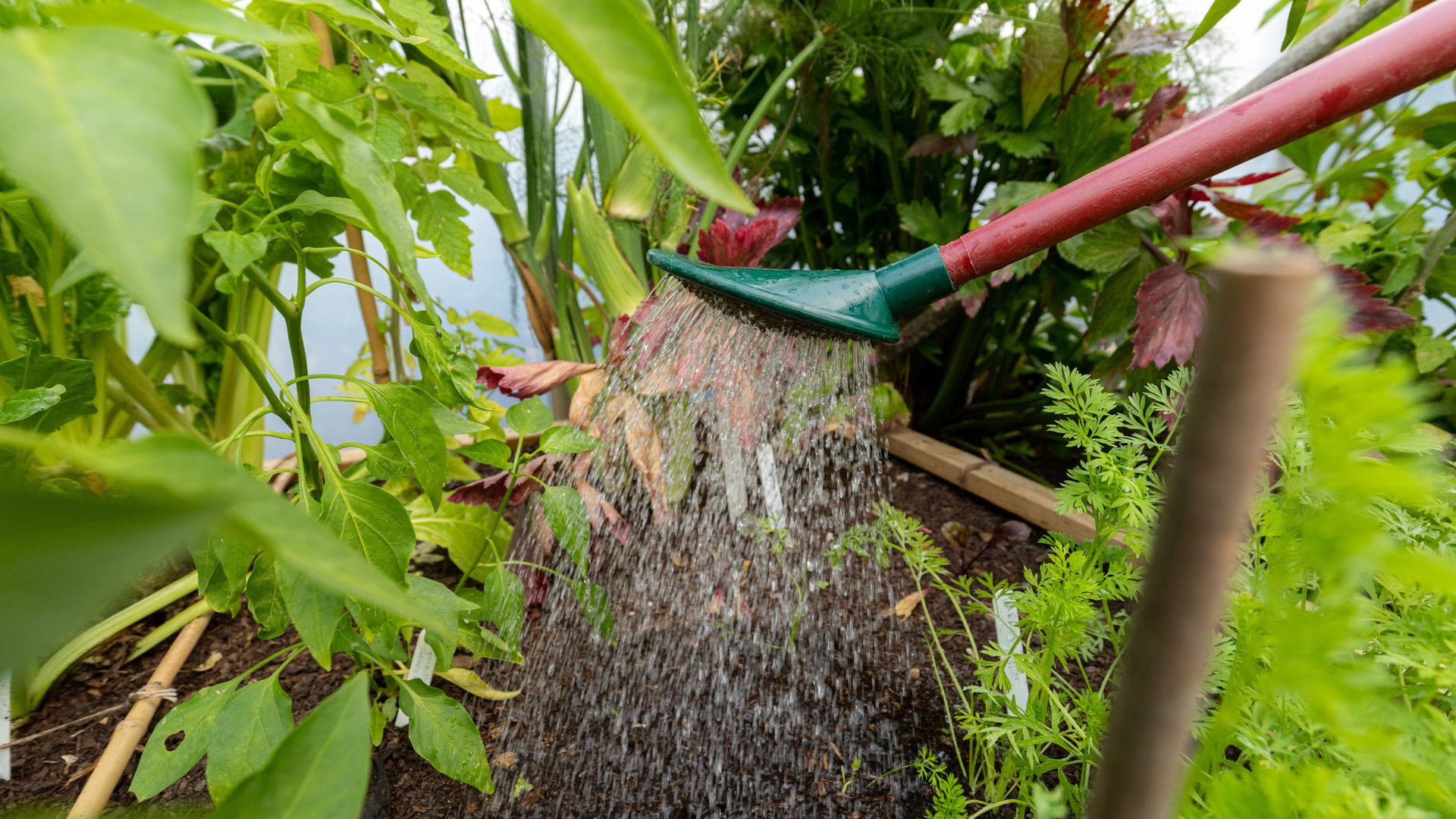Gardening during drought
Climate change is bringing more frequent extreme weather conditions to the UK and this means we need to adapt our growing habits. Extended periods of increased temperatures and heat waves can be damaging to our precious plants and can mean we need water just when it’s in short supply.

Dealing with excessive heat also weakens plants in the long term by impacting their ability to cope with other types of extreme weather conditions, such as harsh winters.
Emma O’Neill, Head Gardener at Garden Organic provides her top tips on how to safeguard your plants and garden sustainably:
- Collect rainwater however you can. Although most water butts will sit empty after just one or two hot days, summer often brings short sharp showers. If rain is forecast, catch it however you can – upturned buckets, trugs, even empty wheelbarrows will help you eek out your water supply.
- Cover bare soil to avoid moisture loss. Use good, preferably homemade, organic compost as a mulch – or even something as simple as grass cuttings - just after watering. This will also improve the condition of your soil enabling it to retain water and nutrients for longer. You can also sow green manures in any soil standing bare after harvests, they will provide a number of additional benefits to your soil.
- If you know that your area of the country is particularly susceptible to droughts and extreme heat, plant drought resistant or drought tolerant varieties such as lavender, rosemary and thyme, or sedums, sempervivums or yucca. Perennial veg and fruit bushes are also a great choice.
- If your compost heap is looking dry, make sure you’re keeping it topped up with 50/50 greens (such as raw veg peelings, grass clippings and weed foliage) and browns (such as cardboard, paper and woody prunings). This will keep the process working well whatever the weather.
When you are able to water, there are a few simple ways to make this precious resource go much further:
- Prioritise which plants need water most. Mature shrubs, trees and grass do not need watering as they will recover quickly, but food crops, pots, hanging baskets and young plants will need to be looked after.
- Water carefully in the right way and at the right time of the day. Watering early in the morning or after dusk prevents water loss through evaporation in the heat, and make sure you always water the soil, not the plant.
- Watering for longer but less often ensures that water seeps below the surface layer, making water available to the plants’ roots for longer.
- Use watering cans rather than hoses and sprinkler systems – they will allow you to be more accurate and less wasteful with your watering.
For more advice on caring for your organic garden please browse our growing advice pages. Garden Organic members can send specific questions to our advice team via the online members' area. For information about membership please click here.